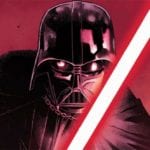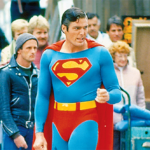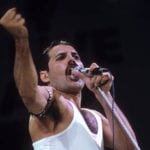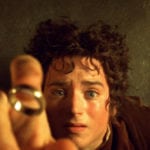 History
History  History
History  Health
Health 10 Everyday Activities That Secretly Alter Consciousness
 History
History Top 10 Historical Disasters Caused by Someone Calling in Sick
 Animals
Animals 10 New Shark Secrets That Recently Dropped
 Movies and TV
Movies and TV 10 Forgotten Realities of Early Live Television Broadcasts
 Technology
Technology 10 Stopgap Technologies That Became Industry Standards
 Weird Stuff
Weird Stuff 10 Wild Facts About Taxidermy That You Probably Didn’t Know
 Travel
Travel 10 Beautiful Travel Destinations (That Will Kill You)
 Miscellaneous
Miscellaneous 10 Modern Marriage Rituals Born from Corporate Branding
 Weird Stuff
Weird Stuff Ten Bizarre Visions of 2026 from Fiction
 History
History 10 “Modern” Problems with Surprising Historical Analogs
 Health
Health 10 Everyday Activities That Secretly Alter Consciousness
 History
History Top 10 Historical Disasters Caused by Someone Calling in Sick
Who's Behind Listverse?

Jamie Frater
Head Editor
Jamie founded Listverse due to an insatiable desire to share fascinating, obscure, and bizarre facts. He has been a guest speaker on numerous national radio and television stations and is a five time published author.
More About Us Animals
Animals 10 New Shark Secrets That Recently Dropped
 Movies and TV
Movies and TV 10 Forgotten Realities of Early Live Television Broadcasts
 Technology
Technology 10 Stopgap Technologies That Became Industry Standards
 Weird Stuff
Weird Stuff 10 Wild Facts About Taxidermy That You Probably Didn’t Know
 Travel
Travel 10 Beautiful Travel Destinations (That Will Kill You)
 Miscellaneous
Miscellaneous 10 Modern Marriage Rituals Born from Corporate Branding
 Weird Stuff
Weird Stuff Ten Bizarre Visions of 2026 from Fiction
Top 10 Iconic Guitar Solos
Since the early days of blues and jazz, guitar solos have been used to showcase the talents of musicians and to add an extra dynamic to the music. Since the advent of rock ‘n roll in the ‘50s and the explosion of heavy metal a few decades later, solos have become almost mandatory in any guitar-driven song, and when done right, they can elevate a recording from good to great.
There are so many great guitar solos that even a list of 100 or more would have some notable omissions. And, of course, judging and ranking them is a matter of taste and personal preference, which is to say it’s entirely subjective. The point of this list, then, is simply to highlight 10 of the more noteworthy guitar solos in history – those that are still relevant today and went on to have a profound impact on their respective genres, and music in general.
Top 10 Performances In Rock Music History
10Cult of Personality – Living Color, 1988 (Vernon Reid)
Living Color’s most recognizable song kicks off with Vernon Reid’s distinctive guitar riff, and throughout Cult of Personality, one gets the feeling that he’s holding back, just waiting to unleash the fretboard mayhem in an audible onslaught. When the solo before the final verse comes around, he does just that and it’s dizzying to behold.
Reid brings his jazz background to bear in a blistering solo that’s at times chaotic, verging on bizarre but works excellently because it remains anchored in the G major pentatonic scale and begins and ends within the bounds of the overall musical arc of the rest of the song. The jaw-dropping work between is that of a musical master as Reid explores the length of the fretboard with frantic finesse. It’s a testament to his skill that the performance is by and large improvisational and, as such, no two live versions of the solo are ever quite the same.[1]
9 Free Bird – Lynyrd Skynyrd, 1973 (Allen Collins and Gary Rossington)
The outro guitar work on Free Bird, off Lynyrd Skynyrd’s debut album in ’73, is a classic example of how a solo can elevate a song, as Collins and Rossington’s signature performance raises the whole thing to a new level of rock brilliance. Unsurprisingly, it’s recognized just behind Sweet Home Alabama as the band’s best song and it became something of a tradition for them to finish their live performances with Free Bird.
At just over 9 minutes long, the tune was initially considered too long for radio play and Skynyrd was discouraged from including it on the album. Fortunately, common sense (and good taste) prevailed. The duel solo came out of a jam session, with the initial lyrical inclusions added almost as an afterthought, and it shows as the track comes into its own when the uptempo, epic guitar solo takes center stage around the 4-minute mark and doesn’t surrender it till the end. While the album version concludes with a fade-out some 5 minutes later, live performances of the song could stretch as long as a quarter of an hour.[2]
8 La Villa Strangiato – Rush, 1981 (Alex Lifeson)
Canadian progressive rock outfit, Rush, are known for their lengthy, dynamic compositions and La Villa Strangiato is perhaps the finest example of this. The epic instrumental track is divided into 12 distinct segments and tells a complete story, despite the absence of lyrics. The tale is conveyed solely through the combined genius of Neil Pert on drums, Geddy Lee on bass, and the remarkable Alex Lifeson on lead guitar.
Following his first, flamenco-style riff-laden solo, Lifeson kicks things up a gear with a spectacular second piece of guitar wizardry, featuring an impressive array of slides, bends, and stops, in the track’s musical climax. Most notably, the guitarist employs dramatic pauses alongside flashes of blistering speed to enhance the musical effect, and it works spectacularly. No wonder many consider Alex Lifeson to be not just a musical pioneer, but one of the most underrated guitarists in history.[3]
7 Voodoo Child (Slight Return) – Jimi Hendrix, 1968
Jimi Hendrix’s name has become synonymous with psychedelic rock and guitar mastery that no one since has been able to replicate. He was nothing short of a genius with instrument in hand, and his catalog of work is packed full of examples, from the instantly recognizable riff of Purple Haze to his reworking of All Along the Watchtower in a way that makes his version overshadow the original classic. But it was on Voodoo Child (Slight Return) that Jimi did possibly his most impressive work.
The track’s signature riff forms the basis from which the impressive opening solo blazes out in all its glory and anyone, regardless of musical taste, can instantly recognize this as something special. Hendrix’s liberal use of the wah-wah pedal and the unique feedback screech of his guitar provide another layer of depth to a solo that can be best described as audacious. In something of a travesty, Jimi saw only one of his singles chart at number one, and no prizes for guessing which tune it was. Voodoo Child (Slight Return) was the last song he ever performed live, just days before his untimely death in 1970.[4]
6 Mr. Crowley – Ozzy Osbourne, 1980 (Randy Rhodes)
Better known these days as a reality TV star, it’s easy to forget that Ozzy Osbourne was a damn fine musician in his heyday, something he proved first with Black Sabbath and then again when he struck out on his own. His debut solo album, The Blizzard of Oz, in 1980 is regarded as a metal masterpiece and Ozzy has a certain Randy Rhodes to thank for that.
Formerly of Quiet Riot, Rhodes on lead guitar formed the backbone of the musical medley that would launch Ozzy to solo stardom. On Crazy Train, he produced one of the most recognizable guitar riffs in existence, but his performance on Mr. Crowley is perhaps his greatest feat. The slow tempo, heavy verse riff gives way to a lightning display as Rhodes whips his way through some classic metal shredding in the first solo, only to follow it up with similar in the outro. He is regularly featured on various rankings of the greatest guitarists of all time, even though he passed away in a freak plane crash while the band was on tour in 1982 at the age of just 25.[5]
10 Weird Jobs That Legendary Rockers Had Before Becoming Famous
5 Crossroads – Cream, 1966 (Eric Clapton)
No discussion of legendary guitarists is complete without mentioning Eric Clapton, old ‘Slowhand’ himself. There’s nothing slow about his remarkable solo on Crossroads, however, Cream’s 1966 rework of Robert Johnson’s blues classic from the ‘’30s.
The song is based on the standard blues chord progression, but EC makes it his own with his typical guitar flourishes and two mindblowing solos where he lays bare his talent for all to see, pulling out all the stops and producing the kind of guitar wizardry that he’s become typically known for. While his ability here is undeniable, according to Clapton himself, most of his solo work on Crossroads is on the incorrect beat. “No wonder people think it’s so good – because it’s f***ing wrong!” he’s since laughingly admitted.[6]
4 Comfortably Numb – Pink Floyd, 1980 (David Gilmour)
On Comfortably Numb, Pink Floyd takes the listener on a fascinating musical journey. Lead guitarist David Gilmour describes the song as a battle between dark and light, something mirrored in the contrast between his verse vocals and Roger Water’s departure in the chorus, as well as in the depiction of past versus present in the lyrics. In fact, the pair had many a disagreement in the recording of the track, and the uneasy compromise that is the finished product is a uniquely brilliant progressive rock song, rounded off expertly with Gilmour’s outstanding solo at the end.
The solo brings Comfortably Numb to an emotive climax and goosebumps ensue as Gilmour marries the conflicting styles of the verses and chorus in a breathtaking display of stops, bends, and explosive flourishes. Guitar solos were all the rage at the time the song was released, so the fact that Gilmour’s work is still relevant and recognized as a defining piece of guitar genius speaks to the undeniable brilliance as a musician, something he proved time and again with Pink Floyd, but never more clearly than on Comfortably Numb.[7]
3 Stairway to Heaven – Led Zeppelin, 1971 (Jimmy Page)
One of the greatest rock songs of all time, Stairway to Heaven has an interesting history. The song never saw release as a single so only officially featured on the UK singles chart for the first time in 2007, when Led Zeppelin’s entire body of past work was made available for free download. The track is the most played in radio history, smashing previous misgivings that only short, catchy tunes were suitable for broadcast, and enjoyed its share of controversy along the way, from the obligatory, almost laughable, satanic connections, to the infamous plagiarism trial in 2016. But, all that aside, we find towards the end of this classic song one of the greatest guitar solos in existence.
The gentle, melodic opening with flute and guitar accompanying Robert Plant’s soothing vocals feels more like a folk song than classic rock. It builds from there, though, with the drums kicking in after a few minutes as Plant’s urgency increases until it all comes together in Jimmy Page’s epic solo. The crashing drumbeat and the vocal crescendo that follows the solo combine with Page’s fretboard prowess to create what must be the most memorable few minutes in the history of recorded rock music.[8]
2 Eruption – Eddie Van Halen, 1978
Eddie Van Halen’s death in 2020 marked the sad passing of one of the greatest musicians ever to wield an ax. With enough practice, any competent guitarist can pull off a good solo, but what set EVH apart was his musical innovation that forever changed the art of guitar playing. He regularly reworked his equipment to achieve new and interesting sounds, and he’s credited with the invention of finger tapping – the technique of rapidly ‘tapping’ the strings rather than plucking or strumming them, to achieve a unique musical effect. The best example of this in action is Eruption.
Coming in at less than two minutes long, the instrumental track (featuring Eddie, his guitar, and nothing else) began as a warmup intro for “You Really Got Me” and was never intended to be a song on its own. It has since become the pinnacle of guitar soloing. Eddie’s lightning-fast fretwork along the full length of the neck, a trance-like melodic flow, finger tapping, and the distinctive overdrive amplifier growl all combine to leave the listener in a state of awe. It’s not hard to understand why Eruption is considered the holy grail of guitar mastery and the crowning moment of a career packed full of them. Rest in peace Eddie Van Halen.[9]
1 Anesthesia (Pulling Teeth) – Metallica, 1983 (Cliff Burton)
When considering iconic solos, one tends to think only of lead guitar – it’s flashy, impressive, and often overshadows the musical foundation laid down by the bass. Often, but not always. There have been some extremely talented bass players over the years, and possibly the greatest bass solo ever recorded is Cliff Burton’s in Anesthesia (Pulling Teeth).
The track appeared on “Kill ‘em All” and that the fledgling young metal group decided to include a bass solo on their debut album shows just what a profound influence Cliff Burton had on the band before his death in 1986. He can be heard saying, “Bass solo, take one” at the start before launching into his iconic performance. While technically a Metallica song, this one is all Cliff, with Lars Ulrich adding in some drumming accompaniment around the halfway mark.
Anyone who’s ever played bass will know that making the thick, four-stringed instrument sound like it’s nimble six-stringed counterpart isn’t easy. Making it sound better is damn near impossible. Yet Burton does just that on Anesthesia (Pulling Teeth), recorded before he’d even reached his 21st birthday. As successful as Metallica has gone on to be, one can’t help but wonder how much better they’d have been had Cliff lived longer. While the other three members have remained constant over the years, they’ve gone through a number of bass players, proving just what an unfillable void Cliff Burton left with his passing.[10]
Top 10 Guitarists You Don’t Know
About The Author: I’m 32 years old and I live in South Africa. I work full time in logistics and I’m a freelance writer in my (limited) spare time. I have various projects in the works, including a potential novel, and I regularly participate in the Reedsy Prompts short story contest, where a growing collection of my work is available for reading. I have been a shortlisted finalist there twice so far.








